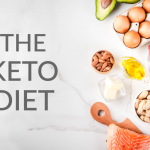You know that vitamin D deficiency can cause bone diseases like osteoporosis, and you probably also know that it’s involved in regulating the immune system and maintaining your cardiovascular health. But how much do you really know about this powerful vitamin? While supplements are one way to get your dose of vitamin D, there are plenty of other food sources that are easy to incorporate into your diet, from seafood like salmon and tuna to leafy greens such as spinach and kale. Here’s our top list of foods rich in vitamin D to help you stay healthy all winter long!
1) Salmon

Salmon is one of the best sources of vitamin D and if you eat it with a healthy fat like coconut oil or almond butter, you’ll get the added benefits of omega-3s. Salmon also boosts your brain power by giving your body the energy it needs to stay sharp and focused. This superfood will help keep you strong and fit all winter long.
2) Tuna

Tuna is a great source of vitamin D and protein, making it a healthy food that will keep you strong and fit this winter. It’s also affordable! Studies show that consuming one serving of albacore tuna (six ounces) provides enough vitamin D to meet the daily requirement for healthy adults. If you’re not keen on eating tuna straight-up, try preparing it as a sandwich for lunch or as an ingredient in your favorite pasta dish.
3) Egg Yolks

Egg yolks are a strong source of vitamin D. One yolk provides about 400 IUs, and the average adult needs 600 to 1,000 IUs per day. And if you’re worried about cholesterol, don’t be: the egg yolk is just one part of the egg with varying amounts of cholesterol depending on the chicken’s diet. The egg white contains more cholesterol than the yolk does, so eating whole eggs can be healthier for your heart than eating egg whites only.
4) Fortified Milk
Vitamin D is essential for overall health and fitness, especially during the winter months. It strengthens the immune system, helps prevent chronic illness, and reduces falls among seniors. The best sources of vitamin D are sun exposure and fortified milk.
Another major food source of vitamin D is fish, such as mackerel and sardines. If you’re not a fan of eating fish, consider taking a vitamin D supplement to meet your daily needs. Be sure to consult with your doctor or pharmacist before starting any new supplements or vitamins, especially if you have existing health problems. One downside of taking too much vitamin D is that it can lead to calcium loss from bones, so don’t take more than 500 IU per day unless recommended by your physician.
5) Fortified Orange Juice

Fortified orange juice is a great way to get your vitamin D, as it has a lot of other essential nutrients as well. It’s also pretty healthy in general because it’s mostly just fruit and water. Plus, you can buy it at any grocery store and make all sorts of different beverages with it. I always drink my orange juice cold, but sometimes I’ll also have a glass at room temperature or even hot with some tea.
6) Fortified Cereal

Cereal is a staple breakfast food for many people, but most are unaware that some cereals are fortified with vitamin D. In order to maintain healthy levels of vitamin D and other nutrients, you should be consuming about 15 micrograms per day. One way to do this is by adding cereal (fortified or not) to your morning routine.
7) Oysters
Vitamin D is a dietary requirement. It’s important to get enough vitamin D because it helps regulate the immune system, bones, and muscles. However, there are few food sources of this essential vitamin. This is why wintertime can be hard for people who need extra vitamin D in their diet. Luckily, there are some foods rich in vitamin Drich enough to provide a healthy dose of the nutrient. Oysters are one of the best sources of vitamin D out there because they’re high in calcium, which means they’re also loaded with the important nutrient. One serving of oysters provides up to 107% of your daily recommended intake!
8) Sardines

Sardines are a great way to get vitamin D because they’re naturally rich in vitamin D. If you want to eat more sardines, try making it a point to eat them once or twice a week. When you’re shopping for sardines, look for canned varieties that have the word chunk light on the label and contain only olive oil or water as the primary ingredients. The American Heart Association recommends eating only one serving of two to three ounces per week of canned sardines, but if you’re pregnant or breastfeeding and your doctor says it’s ok, go ahead and enjoy up to four servings per week. Sardines are also a great addition to salads, pastas and other dishes that typically call for tuna fish.













